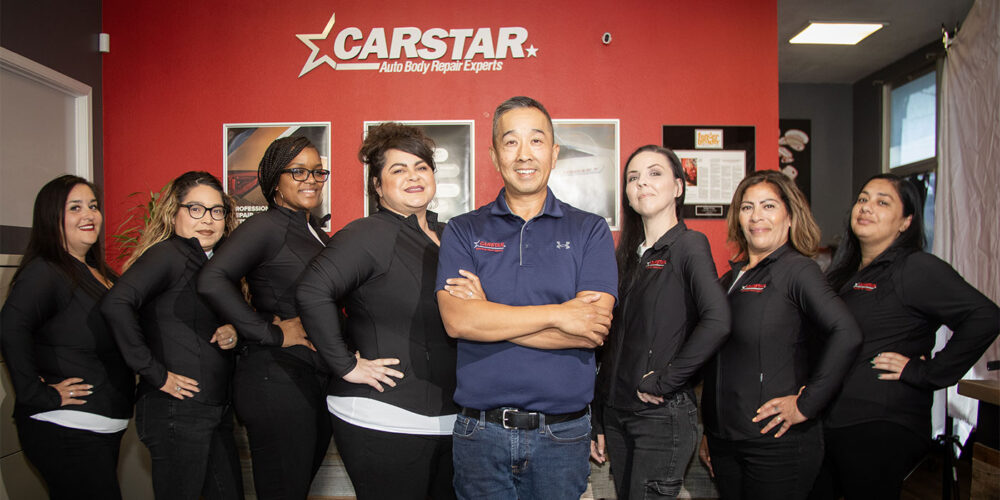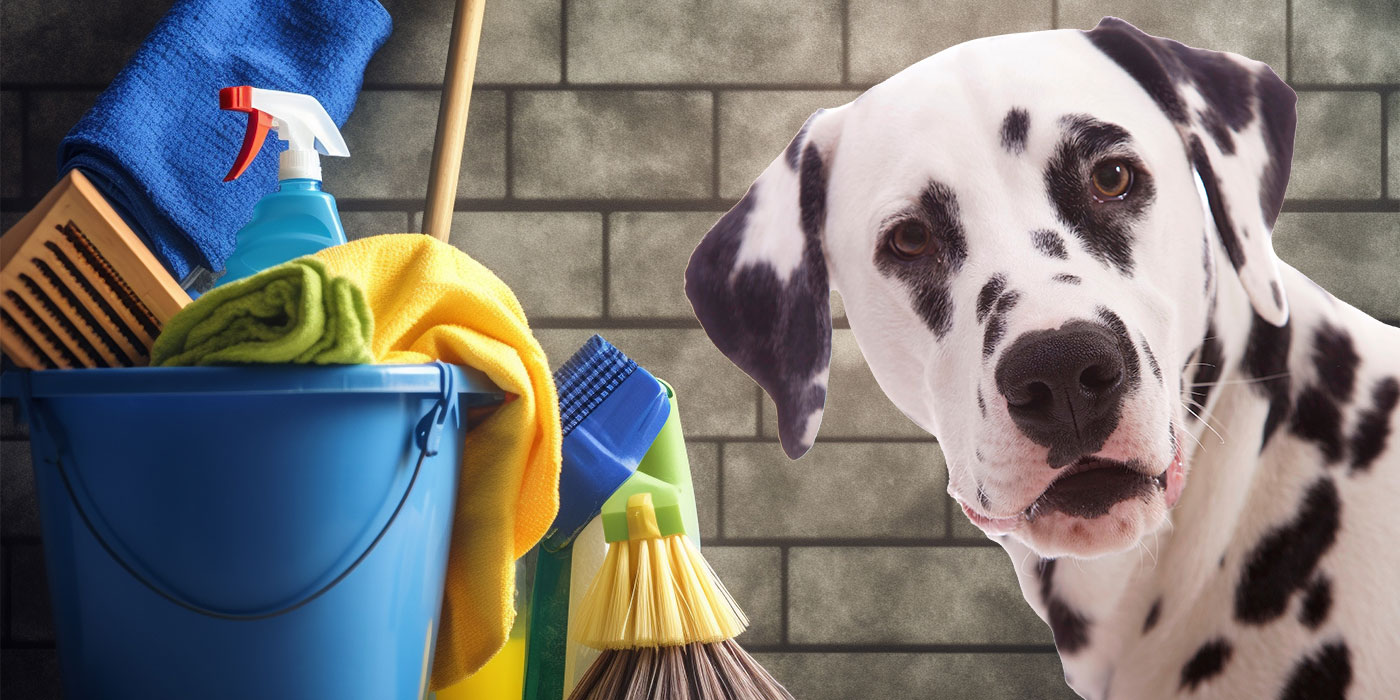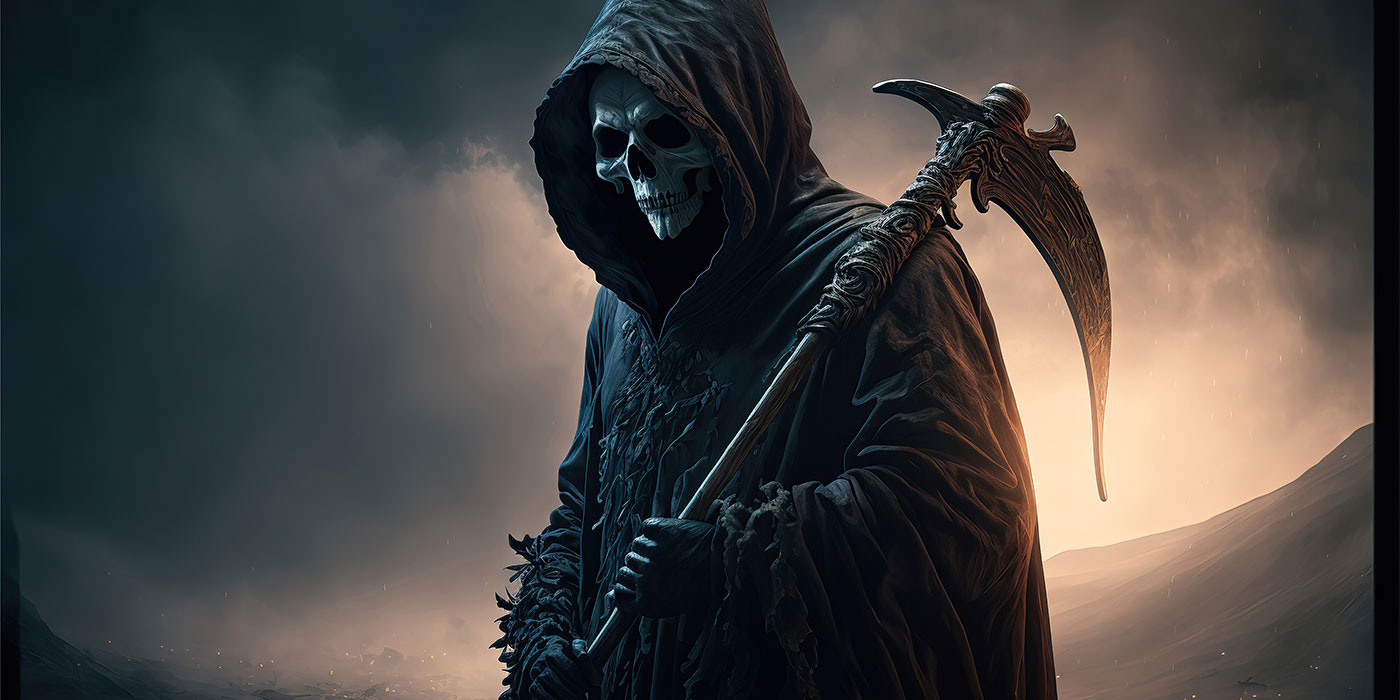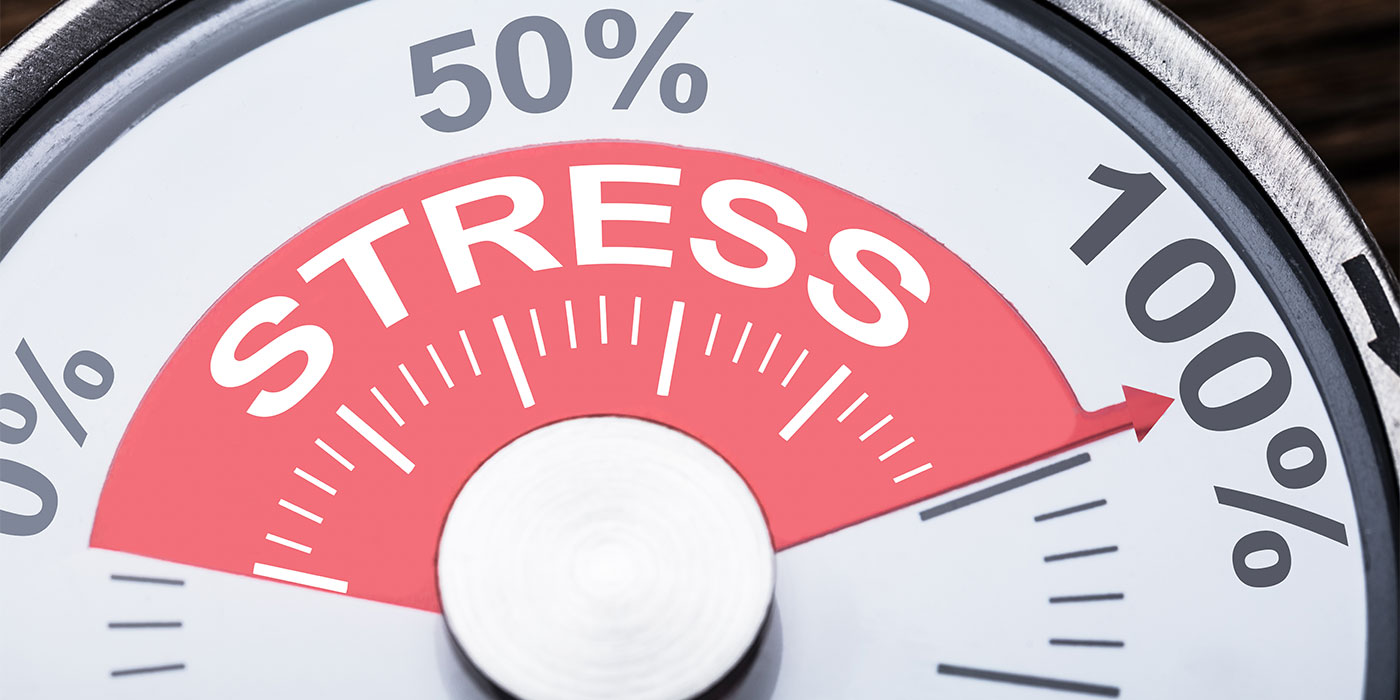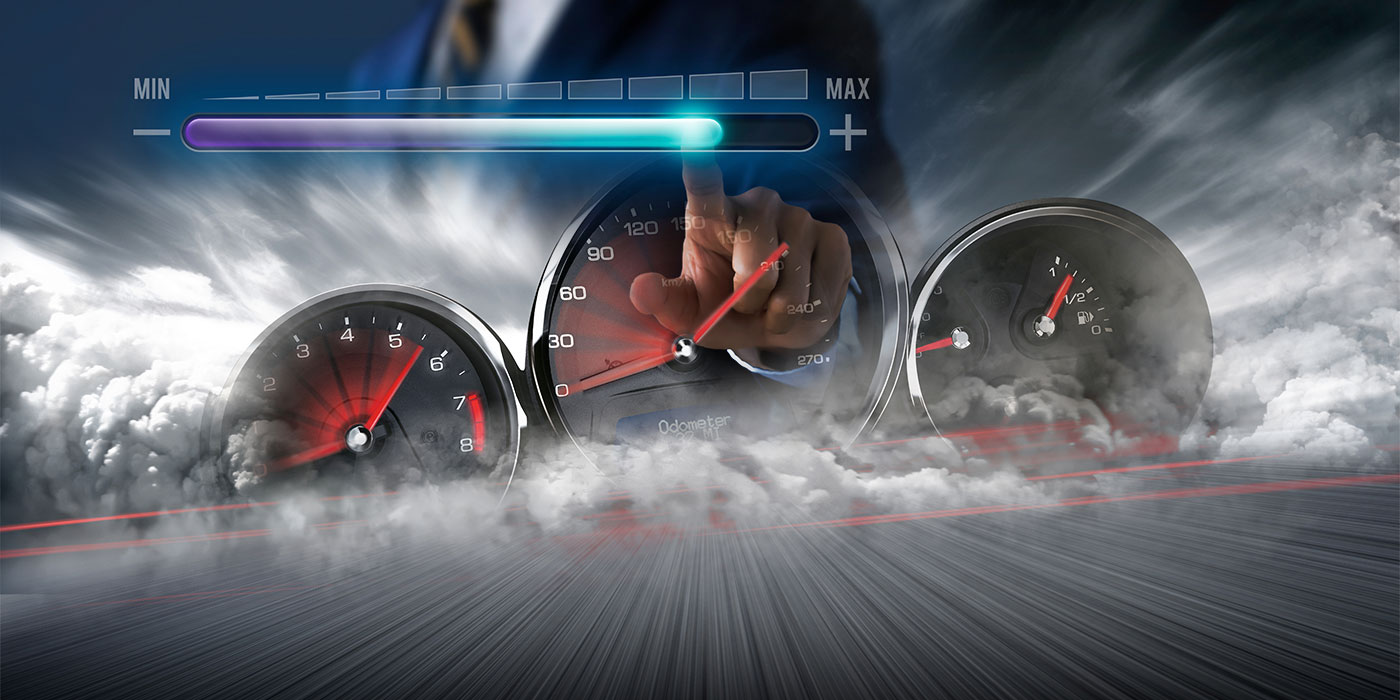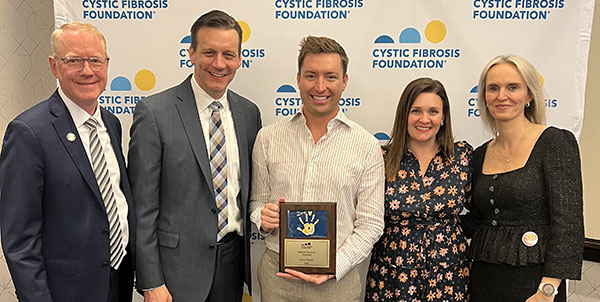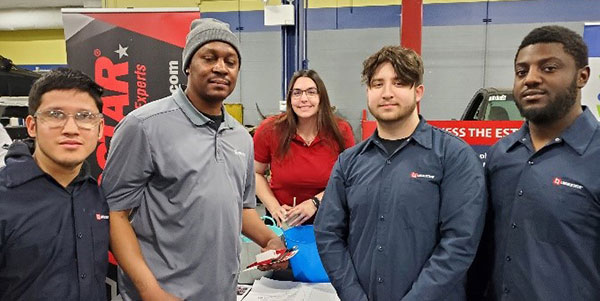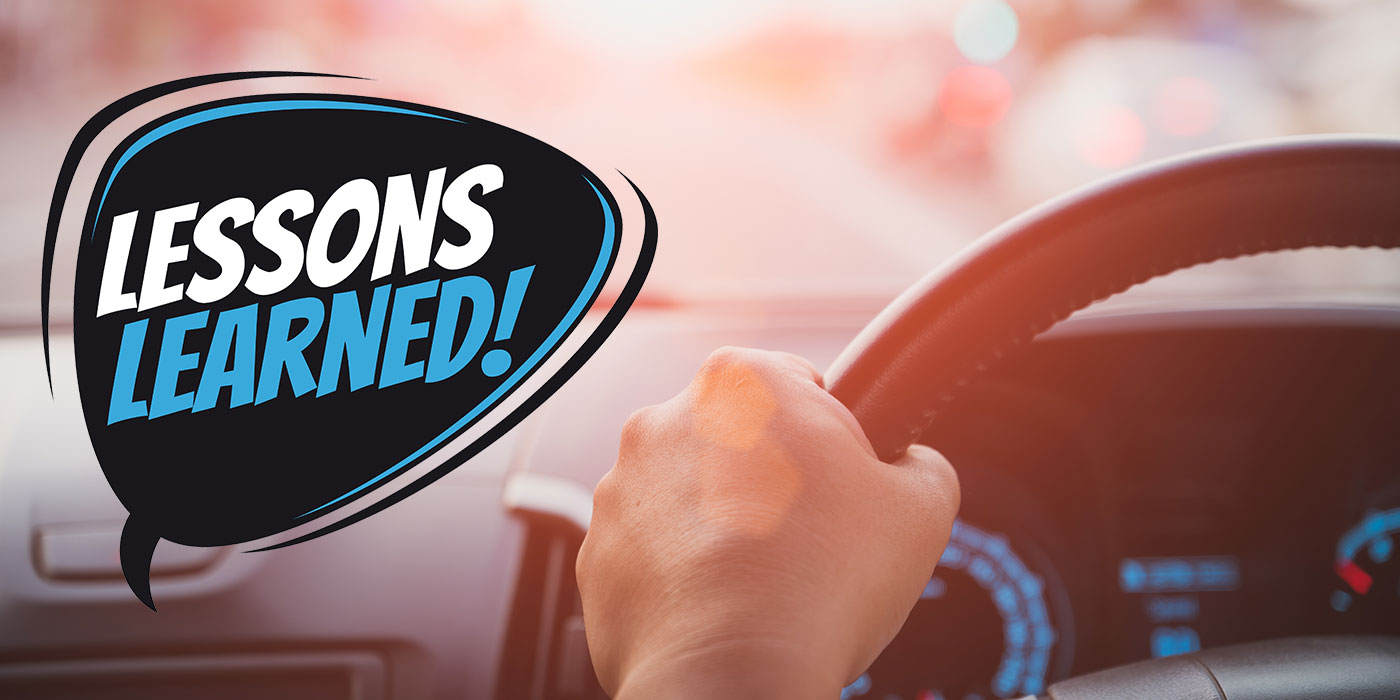I love running my collision repair facilities and enjoy helping customers, dealing with insurance companies, coaching my team and working on ways to improve the business. But who am I kidding? I’m one guy going in 20 different directions all at the same time. Fortunately, I have eight strong, smart, skilled women who herd me the right way, guide my business, help our customers with kindness and compassion, and generally kick butt every day.
As the owner of two CARSTAR locations in the San Francisco area, I’m always looking for innovative ways to find, train and retrain great team members. And these eight women — all from different backgrounds and experiences — prove that the right man for the job can absolutely be a woman.
They’re like my squad, and if Taylor Swift ever needed collision repair, I’d lend her my CARSTAR squad to help.
This month, I turned the tables and interviewed them about how they got into the collision repair business, what they like about the industry and where they see their careers going. First, meet our team (pictured from left to right above):
- Monique Hayes, customer service representative (CSR) (CARSTAR Auto World San Jose)
- Johanna Cardenas, CSR (CARSTAR Auto World San Jose)
- Aaliyah Watson, CSR (CARSTAR Auto World San Franscico)
- Savannah Soliz, estimator (CARSTAR Auto World San Jose)
- Katie Phelps, estimator (CARSTAR Auto World San
- Francisco)
- Reyna Solano, CSR (CARSTAR Auto World San Francisco)
- Susie Rovetti, human resources (HR) (whole company)
Jason Wong: Can you tell me about your background and how you got started in the collision industry?
Monique Hayes: My background is in customer service, where I was a supervisor for more than eight years. I was looking to continue in a challenging and fast-paced environment.
Johanna Cardenas: I began to work in the automotive collision industry at a very early age after I finished high school. I was introduced to this business and started with no experience at that time. I liked working with vehicles and have been in this industry for 10 years now.
Aaliyah Watson: I was born and raised in San Francisco. I started working in the auto body industry about two years ago.
Savannah Soliz: I grew up in the automotive industry. My family owned a body shop in San Jose since I was 10 years old. I started asking more questions about repairs and learned about estimating at 13 years old. My parents were old-school in their ways of teaching. I was told if you want to learn, start with cleaning the shop. Then I moved on to detailing cars, then administration work, and finally estimating and learning how to communicate with insurance companies and customers.
Katie Phelps: I grew up in the body shop across the street from where I work now back when my dad owned it. Years later, I moved back to California after health issues and started working for the company — where my dad had worked — running the office. After eight months, I was given a shop to run and learned through trial- by-fire and somehow was able to turn a profit thereafter.
Reyna Solano: I’ve been an admin for over 20 years, working for education and the HR department for the city and county of San Francisco.
Susie Rovetti: I started working as a receptionist at CARSTAR Auto World Collision around 2013. I actively completed I-CAR certification for estimating and eventually became an estimator. Throughout my years, I was able to learn the ins and outs of multiple DRPs.
JW: What motivated you to pursue a career in this traditionally male-dominated field?
MH: It was actually another woman. I’ve seen her grow and shine in this industry for 20-plus years. She gave me the confidence and motivation to step into this industry.
JC: I’ve always enjoyed working with vehicles, and even though it is male-dominated, you can be part of this field with a lot of hard work and motivation. It is a challenge to work in this field; you need to be able to overcome certain situations to succeed.
AW: I’m always up for a challenge. I knew it would be hard, but I was interested in learning new skills.
SS: I built my first go-cart when I was 10 years old. I love working with people and cars. I love a challenge, and it makes for great conversation.
KP: I’ve always been in shops since I was a kid. I had the opportunity to work in a shop and never left.
RS: In 2021, I was looking for work and saw an opening for a CSR front-desk position and decided to apply. To be honest, I love a challenge. I will say it is different working with all males, but these men at CARSTAR Auto World Collision have been all helpful and respectful. They’re a fun group of colleagues.
SR: I’m always up for a challenge. Taking it one day at a time as a female estimator, I was able to write over $2 million in sales.
JW: Have you encountered any unique challenges or obstacles as a woman in the collision industry? How did you overcome them?
MH: So far, this industry has been really good to me.
JC: Yes, I’ve encountered several challenges and obstacles throughout my career as a woman in the industry. It takes a lot of dedication and training to be able to overcome them, and while it wasn’t easy, it is rewarding.
AW: Every day is a new challenge. Often, we meet customers at one of their hardest and most frustrating times. They just got into an accident, so they come into the shop feeling overwhelmed and sometimes irritated and angry. So, it’s my job to calm them down. They see women and instantly think we don’t know what we’re talking about, but after conversations with us, they realize we’re just as knowledgeable as our male counterparts.
SS: From time to time, customers would prefer to speak with a male regarding their repairs. I simply say, ‘They are the technician that receives direction, and that’s where I come in.’
KP: I’ve been fortunate that all my techs and coworkers were fine with me being a woman. Occasionally, I’ve had customers ask to speak with a man, but usually they apologize once I explain that it’s me that will handle the repair estimates.
RS: Nothing that I couldn’t handle.
SR: I get challenged every day. You learn to overcome obstacles dealing with customers, technicians and our insurance partners through the power of knowledge. You have to know what you’re talking about. Learning OEM certifications has definitely helped also.
JW: What specific skills and qualities do you think are important for success in this field?
MH: Always stay professional so people take you seriously. Be patient and show compassion, especially when dealing with challenging customers.
JC: I believe that everyone has qualities, but it takes a lot of determination to be able to build a skill and make it work for you. I also think that having hands-on training for yourself is an essential, key element for this field.
AW: You have to have tough skin and not let everything get to you. Being able to communicate. Maintain a positive attitude. Being firm as needed.
SS: Documentation, communication, good photos. Judgment calls on repair vs. replace. Most importantly, customer service and empathy. We’re in the customer service industry.
KP: Being organized, being able to multitask and being a good problem solver.
RS: Time management and good customer service. Keep positive.
SR: Don’t take no for an answer, and keep your ability to continue learning.
JW: What advice would you give to other women considering a career in the collision industry?
MH: Be brave and determined to succeed. Like everything else in life, it’s a learning process.
JC: Learn as much as you can, and work hard.
AW: Just go for it. Don’t let anyone or nothing stop you from doing what you want.
SS: Take everything with a grain of salt. If Rosie the Riveter did it, we can too, because times are evolving. I do not see cars going away anytime soon. Women are great at communication and need to have photographic memories. In the career path, it’s good to get into a trade industry. There is plenty of room to grow in any company you pursue.
KP: If you’re interested in working in a shop, do not be intimidated. Working hard and not being afraid to get in there, get dirty, ask questions and ask for help when needed goes a long way, and the other workers will see you aren’t afraid to work hard.
RS: Be ready to be on your feet and not sit at your desk. Have good customer service skills.
SR: Knowledge of repair procedures is the most important thing you can learn. Continuing education will keep you ahead of the game.
Summary
At the end of the day, it’s your squad who looks out for you, supports you and helps guide you — and you do the same for it. After all, we all have squad goals.

